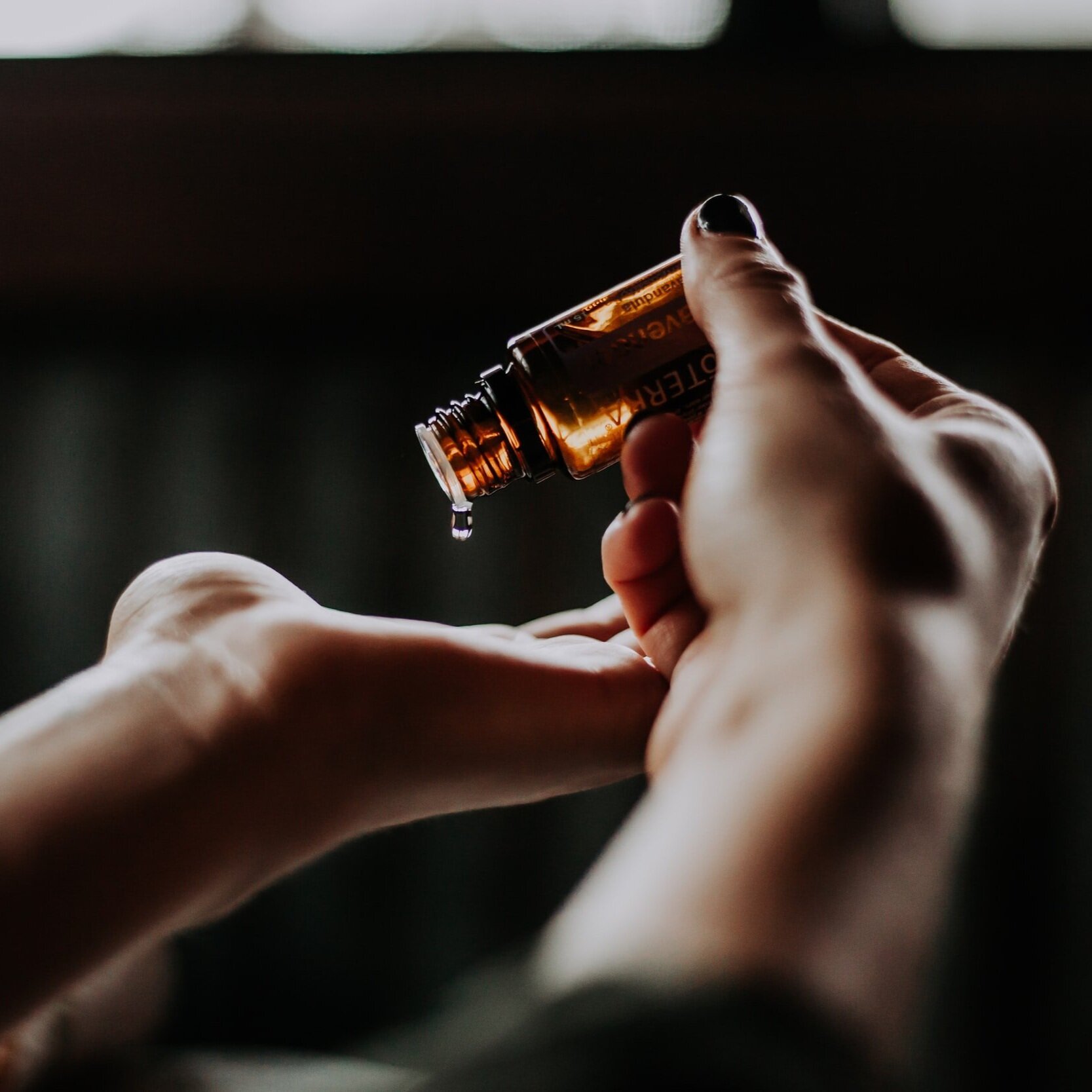Are Organic Hair Products Actually Better?
W&S Sustainability, Nature, & Climate Editor
SHARE ON:
Organic hair products are all the rage right now. There is an overall rising trend where people, especially women, are interested in eating clean, reducing the amounts of toxins in their everyday lives, and generally trying to be healthier human beings. With the scalp being part of your body’s largest organ, it’s no wonder that organic hair products are in high demand.
But what actually makes a hair product organic? Are these movements for “natural” and “organic” products truly healthier for us? If so, are they more beneficial for the planet? Our team did some research to help you understand the ins and outs of organic hair products to make the most conscious decision possible.
What Are Organic Hair Products?
In the US, the term organic applies to products that contain no synthetic additives or ingredients which were genetically engineered or modified.
It might surprise some that the term “organic” isn’t something that’s regulated by the US government. The FDA has no official definition of what makes a cosmetic product organic and only regulates organic as it applies to agricultural products.
So, if you see a cosmetic product with the official FDA organic seal, 95% of the product’s ingredients are derived from organic agricultural ingredients. Alternatively, products made with 94%-70% of organic agricultural ingredients may still call themselves organic on the market; they cannot use the official FDA organic seal.
This means that organic hair products in the US are any products that contain at least 70% of organic agricultural ingredients.
Organic Hair Products Vs. Natural Hair Products Vs. Vegan Hair Products
“Not all-natural products actually contain mostly or many natural ingredients.”
Although organic, natural, and vegan are used interchangeably when talking about hair products. However, they all mean different things.
Natural is another term not regulated by the FDA. It describes a product with at least one ingredient derived naturally without genetic modification or synthetics. Still, brands can use this label on a product when only a few ingredients fit this description. As a result, not all-natural products actually contain mostly or many natural ingredients.
On the other hand, vegan products are products derived from ingredients that contain zero animal products. However, this label has no connection to natural or organic brands. Sometimes, vegan products may contain synthetic and genetically modified ingredients.
This tells us that natural, vegan, and organic hair products can vary wildly in formula, and you should always consult the ingredients list before purchasing anything for your hair.
Benefits Of Switching To Organic Hair Products
no. 1
Organic Hair Products Tend To Be Better Suited For Women With Natural Hair
It’s been widely accepted that ingredients commonly found in traditional shampoos aren’t made with curvy girls in mind. Women following the curly girl method will be the first to attest to this fact.
For many women with curly hair, though not all, ingredients like sulfates, parabens, and silicones may be detrimental to hair health. These ingredients can sometimes lead to extra frizz and dryness, a state that curly hair is already more prone to when compared to straight, less textured hair types.
no. 2
Organic Hair Products Can Be Used Interchangeably
When brands opt for making organic hair products, they usually make products with ingredients that are multi-use and safe for parts of the body beyond the scalp.
For instance, Bouclème’s Curl Conditioner serves as a hair conditioner and hand cream. The Ordinary’s 100% Organic Cold-Pressed Rose Hip Seed Oil can be used for hair, nails, and skin.
no. 3
Organic Hair Products Are Sometimes Better For Your Overall Physical Health
Traditional hair care products tend to contain ingredients that could be linked to increased health risks. For instance, many organic or natural hair products avoid ingredients like formaldehyde (also known as formalin, morbicid acid, methylene oxide, methyl aldehyde and methylene glycol).
Formaldehyde at extremely low levels is usually of no concern. Still, cosmetic products tend to have what is often considered high amounts. These increased amounts have led many to be concerned about side effects such as:
sensory irritation
skin sensitization
breathing difficulties
asthma
cancer, in circumstances where there is chronic high exposure.
While this is only one ingredient and the link between general health risks and chemicals in cosmetics like formaldehyde or other commonly known ingredients like parabens are underdeveloped, the conscious consumer may want to opt for organic hair products for personal peace of mind.
no. 4
Organic Products Contain Less Water-Polluting Chemicals
In the same breath, chemicals commonly found in traditional hair products may not be so good for the environment’s health.
Since 2010, studies have suggested that chemicals in personal care products like parabens may negatively impact lakes, rivers, groundwater, oceans, and the animals that depend on them.
For example, aquatic animals have been shown to have altered hormone levels due to these chemicals, something that harms their ability to reproduce. Also, many wastewater treatment plants are not equipped with the technology to handle most polluting ingredients of concern from cosmetic products like those used for hair.
Potential Caveats Of Switching To Organic Hair Products
no. 1
Organic Doesn’t Always Mean Ecologically Beneficial
Aforementioned, the FDA does not actually regulate organic when it comes to cosmetics. This has led some researchers to suggest that this lack of robust legislation may lead to some adverse environmental impacts in the long term.
This is because increased consumer demand for organic hair products leads to more large corporations getting involved in the organic industry, which has led to the weakening of “ecologically beneficial standards” and a decreased potential for organic farming to reduce greenhouse gas emissions.
Moreover, organic farming looks different across contexts, and not all are equally useful environmentally. Large agricultural businesses in the US, for instance, can practice harmful trends like monoculture and still be considered organic.
no. 2
Organic Hair Products Are Usually More Expensive
There are many reasons why organic hair products might be priced higher than traditional alternatives. First is that organic products are made using more labor-intensive methods of agriculture as they don’t use artificial pesticides and fertilizers.
“Not everyone can afford to make the switch.”
Also, organic producers have higher start-up costs than their non-organic counterparts, with extra fees incurred from registration, accommodation, and certification.
However, not everyone can afford to make the switch. Organic hair products can sometimes be double or triple the price of your conventional hair products. Perhaps it may be better for some consumers to prioritize organic food and drinks instead or generally opt-out of organic buying to make other financial goals.
The decision to take on the financial cost of organic hair products is entirely personal and complicated and should be taken in the context of one’s overall financial situation.
no. 3
Some Non-Organic Ingredients Make Products Safer
The move toward natural and organic hair products was primarily influenced by concern toward chemical preservatives like parabens, which are endocrine disruptors linked to breast cancer. However, not all preservative chemicals are harmful or unnecessary.
Chemical preservatives extend the shelf life of products by reducing the growth of bacteria, mold, and yeast. Natural preservatives often found in organic hair products, on the other hand, aren’t always as effective as chemical, man-made preservatives at doing this.
The solution? Some suggest that instead of all-natural, all-organic ingredients for formulas, it might be better to opt for a mix of both. Staying away from toxic chemicals like parabens but instead opting for safer, more potent chemical preservatives like disodium EDTA or ethylhexylglycerin might be better for both consumer health and product quality and lifespan.
no. 4
Organic Hair Products Are Not As Good At Protecting Hair From Heat
Women who do a lot of heat styling may not want to opt for the fully organic hair care route. This is because there are currently no organic hair care products that can truly protect your hair while using heating tools.
Synthetic ingredients like silicons are usually the best and only option for women who prioritize hair health. Silicons are safe, non-toxic chemicals, but they aren’t organic. We suggest women with textured hair types be wary of organic hair care products whenever heat is involved.
Our Tips And Recommendations For Going Organic With Your Hair Products
Now that you know all the information, for those of you trying to take the organic route when it comes to your hair products, we recommend avoiding these ingredients:
Parabens
Triethanolamine (TEA)
Formaldehyde
Synthetic Fragrance/Parfum
Propylene Glycol
Sodium Laureth sulfate
Sodium lauryl sulfate (SLS)
Also, here are some US-based brands making organic hair products we think you should check out:
PROSE
Prose is a B-corp certified brand that creates custom hair care solutions for those wanting a unique formula that can meet all their hair needs. They offer shampoo, conditioners, and hair masks delivered to your door after taking an online quiz that specifies your hair type.
RAHUA
Rahua creates hair care products that are organic, natural, and free of sulfates and parabens. Even better, following the cultural traditions of native-Ecuadorian founder Fabian Lliguin, all their products are made following Quechua customs. Rahua also promises that one acre of rainforest is preserved for each bottle bought!
ODACITE
Odacite is a brand founded by health and wellness coach Valerie Granbury, inspired to create healthy hair care after beating cancer. They also sell moisturizers, serums, skincare, much more, and hair care. We also love that all their products are vegan, cruelty-free, organic, and GMO-free!
The Bottom Line on Organic Hair Products
There’s no one-size-fits all when it comes to doing what’s best for your personal hair health. Instead, we encourage you to think about all your options, what’s the most feasible for your circumstances, and making a commitment based on this assessment alone.
We hope by giving you insight into the nuances of organic hair products, you can make the most conscious decision possible!










